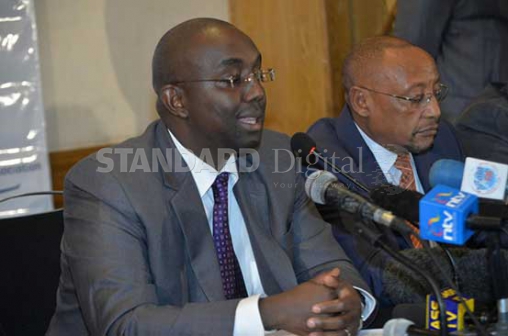×
The Standard e-Paper
Home To Bold Columnists

Top managers at Kenya Airways resigned late Thursday following intense pressure from striking pilots.
Human resources director Alban Mwendar and his Flight Operations counterpart Paul Mwangi are among those who left the airline in a compromise that informed the suspension of the eight-hour strike.